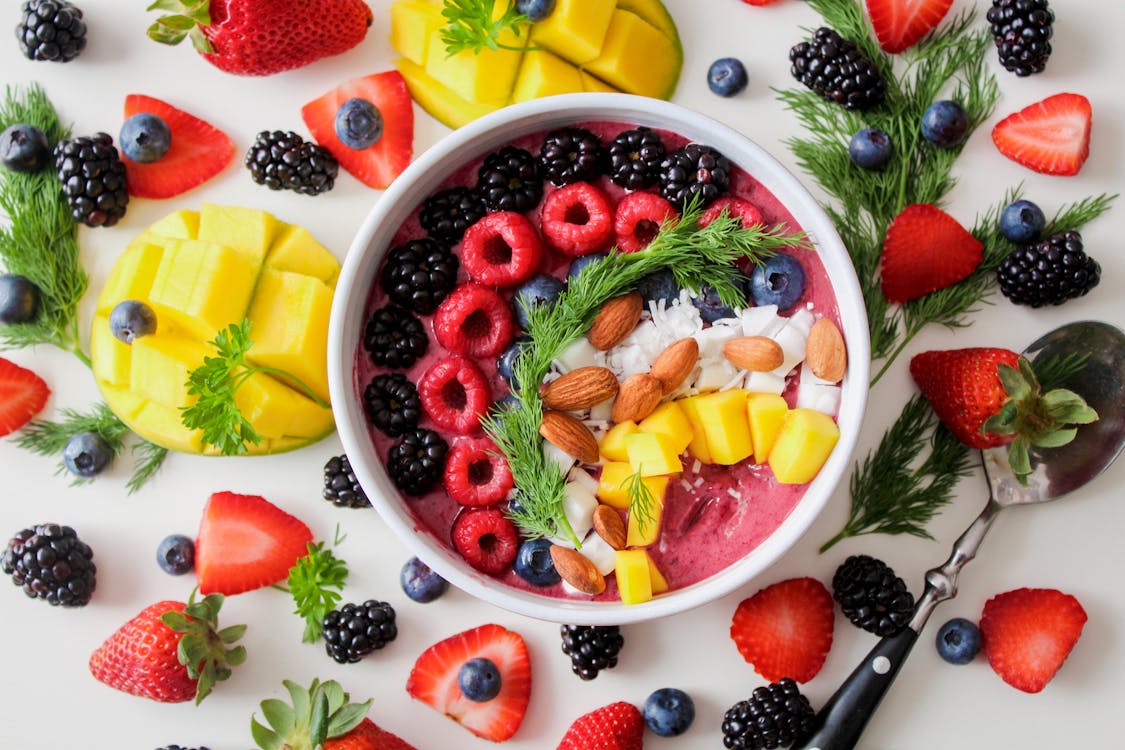Food is more than just fuel for our bodies; it’s a central part of our lives, cultures, and celebrations. But beneath the surface of our everyday eating habits lies a trove of surprising facts that could dramatically alter how you think about your diet. From unexpected sources of nutrients to the hidden dangers lurking in popular foods, here are ten shocking food facts that might just change the way you eat.
1. The Hidden Sugar in Your Favorite Foods
Sugar isn’t just lurking in desserts and sodas—it’s hiding in places you might not expect. For example, many savory products like bread, salad dressings, and even pasta sauces contain added sugars. The American Heart Association recommends limiting added sugars to about 6 teaspoons per day for women and 9 teaspoons for men. However, it’s easy to surpass this limit without realizing it, simply by consuming packaged and processed foods.
2. The Truth About “Healthy” Snacks

Many snacks marketed as “healthy” or “low-fat” can actually be misleading. Take granola bars, for instance. While they often advertise themselves as a wholesome choice, many are packed with added sugars and unhealthy fats. A healthier alternative is to opt for whole foods like fresh fruits, nuts, and seeds. Always check the ingredients list and nutrition label to ensure you’re making a genuinely healthy choice.
3. Coffee Can Affect Your Gut Health
Coffee lovers might be surprised to learn that their daily cup of joe can impact gut health. While coffee has numerous health benefits, including antioxidants and improved cognitive function, it can also disrupt the balance of gut bacteria and lead to digestive issues for some people. If you’re experiencing gut discomfort, it might be worth considering how much coffee you’re consuming and exploring alternatives like herbal teas.
4. Fruits Can Be Surprisingly High in Sugar
While fruits are packed with essential vitamins and minerals, some varieties are surprisingly high in sugar. For example, mangoes and grapes have higher sugar content compared to other fruits. While the natural sugars in fruit are generally healthier than added sugars, it’s still important to consume fruits in moderation and be mindful of your overall sugar intake, especially if you’re managing blood sugar levels.
5. The Hidden Chemicals in Processed Foods
Processed foods often contain artificial additives and chemicals that can have unexpected effects on health. For instance, some processed meats contain nitrates, which are linked to increased cancer risk. Additionally, artificial colors and preservatives can affect behavior and overall health. Eating more whole, unprocessed foods can help reduce your exposure to these potentially harmful substances.
6. Cooking Methods Can Alter Nutritional Value
How you prepare your food can significantly impact its nutritional value. For example, boiling vegetables can cause the loss of important vitamins and minerals. Steaming or roasting is often a better option to preserve nutrients. Similarly, frying foods can increase their fat and calorie content, while grilling or baking might be a healthier choice. Being mindful of cooking methods can help you maximize the nutritional benefits of your meals.
7. The Surprising Amount of Sodium in Restaurant Foods
Restaurant meals are often much higher in sodium than home-cooked dishes. A single meal at a restaurant can exceed the recommended daily sodium intake, which is about 2,300 milligrams for most adults. Excess sodium can contribute to high blood pressure and other health issues. When dining out, consider asking for dressings and sauces on the side and choose dishes that are lower in sodium.
8. Organic Doesn’t Always Mean Healthier

While organic foods are often praised for being better for the environment and free from synthetic pesticides, they aren’t always healthier. Organic snacks and processed foods can still be high in sugar, fat, and calories. It’s important to remember that organic does not automatically equate to healthy. Focus on a balanced diet rich in whole foods and use organic options to reduce exposure to pesticides where possible.
9. The Impact of Portion Sizes
Portion sizes have grown significantly over the years, and this can have a major impact on our calorie intake. Larger portions mean more calories, and eating out or buying pre-packaged foods often leads to oversized servings. Paying attention to portion sizes and using smaller plates can help manage calorie intake and prevent overeating. Being mindful of portions is crucial for maintaining a healthy diet and weight.
10. The Surprising Benefits of Fermented Foods
Fermented foods like kimchi, sauerkraut, and kefir offer more than just a unique flavor—they’re also incredibly beneficial for gut health. Fermentation introduces beneficial bacteria known as probiotics, which can improve digestion, boost the immune system, and even enhance mental health. Adding a variety of fermented foods to your diet can support overall health and well-being.
Conclusion
Food is a fascinating and complex subject, with many surprising facets that can impact our health and well-being. By being aware of these shocking food facts, you can make more informed choices and better understand the true nature of what you eat. From hidden sugars and misleading health claims to the benefits of fermented foods, these insights can help you navigate your diet more effectively and promote a healthier lifestyle. So, the next time you sit down for a meal, remember that knowledge is power—making mindful choices can lead to a happier, healthier you.


